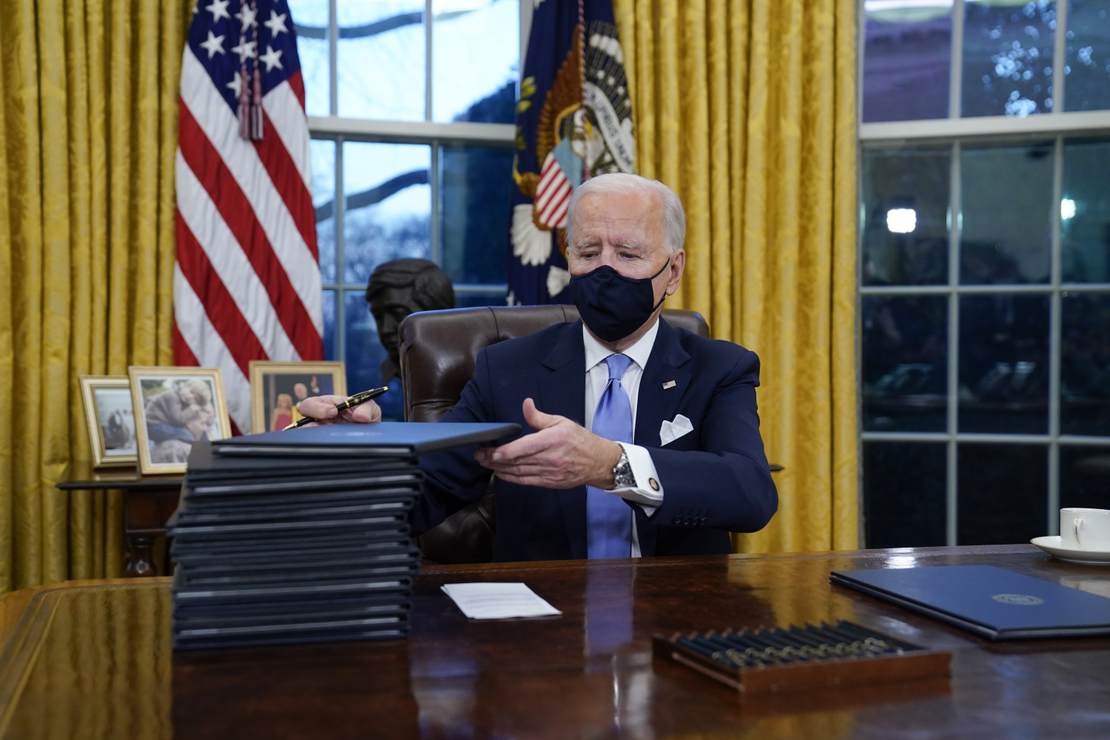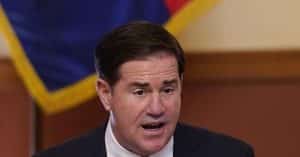The Biden presidency is only a few days old, and already crucial constituencies within the Democrat coalition feel betrayed. President Joe Biden was supposed to be the consensus candidate for the Democrat Party establishment because voters viewed him as a mid-Atlantic moderate. The rest of the primary field collapsed behind him, and, like Pete Buttigieg, are collecting their payoffs in appointments and other political promotion.
The flurry of actions taken in the first few days of the Biden administration ripped that marketing strategy asunder. The Biden campaign had provided clear policy documents online, so, based on their own words, what has happened since the inauguration was utterly predictable, especially on energy policy and social issues.
President Biden won New Mexico decisively with 54% of the vote to President Trump’s 43.5%. Now, the state sees the impact of what is at least a 60-day moratorium on oil and natural gas leases on federal land. Half of New Mexico’s production happens on federal land, and spending on education and other public programs is dependent on the industry. A permanent ban would be devastating, according to many leaders in the state, including Carlsbad Mayor Dale Janway:
“Eliminating drilling on public lands will cost thousands of New Mexicans their jobs and destroy what’s left of our state’s economy. How does that bring us together? Environmental efforts should be fair and well-researched, not knee-jerk mandates that just hurt an already impoverished state.”
It seems New Mexico missed the debate with Joe Biden’s comments on fracking. On two occasions in the primary, Biden pledged to end fracking. When the Trump campaign raised this issue during the general election, Biden said the ban would only apply to federal lands. So, his executive action is precisely what he said he would do.
New Mexico is not alone. The Ute Indian Tribe of the Uinta and Ouray Reservation in Utah claim this ban is a direct attack on Native American sovereignty and self-determination. They have asked the Department of the Interior to withdraw or amend the temporary halt. Nominating the first Native American woman to head the agency is not enough to stave off criticism.
Unions are also upset with the halt on leases as well as the cancelation of the Keystone XL project. The Laborers’ International Union proudly endorsed Joe Biden and Kamala Harris during the election. Now they are saying the decision to cancel the Keystone pipeline will kill thousands of well-paying jobs, which is objectively true. Likewise, the president and CEO of the Association of Oil Pipelines Andy Black said that “Killing 10,000 jobs and taking $2.2 billion in payroll out of workers’ pockets is not what Americans need or want right now.”
The United Association of Union Plumbers and Pipefitters also endorsed Joe Biden in August of 2020. The same union condemned the new administration for the loss of jobs and the likelihood of rising energy costs, which they correctly note hurts working- and middle-class families.
Black women are also feeling betrayed. The Executive Order on gender identity is generating a backlash from a community that feels it was instrumental in President Biden’s victory. Allison Bailey expressed a sentiment that was common on social media:
Women put @POTUS in the WH, Black women, in particular. The same women whose girls benefit from sports scholarships. The same women who are overrepresented in the prison population & on day one, a white man @JoeBiden signs away their rights.
Such a betrayal.
— Allison Bailey (@BluskyeAllison) January 21, 2021
The corporate media could have prevented this voter surprise if they had pressed candidate Joe Biden on his stated policy positions. However, even with better media outlets, a learning curve for a new alignment was bound to happen.
Conservatives and Republicans should not be adopting an “I told you so” posture. Instead, we need to promote leaders who can speak effectively to these voters about the shift in the political landscape. Democrats and the oligarchs who support them are pushing an extreme, progressive agenda. One that benefits the wealthy and powerful and subsidizes the poor. This agenda also seeks to divide Americans by immutable characteristics that have nothing to do with effective policy.
These trends are evident in California, arguably the most progressive state in the country. In a recent interview, Joel Kotkin, presidential fellow in Urban Futures at Chapman University, explained the phenomenon this way:
“The perfect Mark Zuckerberg result is a 35-year-old, not married, no kids, living in an apartment playing video games all day with virtual reality. Maybe drinking, smoking pot, and watering his plants. That is the perfect citizen in the Facebook universe.”
That is not the universe most Americans want to live in and contributes to increasing California’s net outmigration.
President Biden is now a relic in his party and compromised by radical progressive interests that prioritize environmental, gender, and race-based issues. While Democrats think union, working-class, and minority communities owe them support, their policies no longer serve these groups’ security and prosperity. Rejoining the Paris Accords and restrictive energy policies benefit the two nations that pose an existential threat to the U.S.: Russia, and China. The pandemic should have taught everyone that widespread government subsidies are not reliable, and our leaders cannot dispense them efficiently or effectively.
Republican candidates at the local, state, and national level who can articulate the results of progressive policies in a compelling and personal way and reach out to alienated Democrat constituencies in an authentic way will win in a landslide. To be credible, the Republican Party needs a policy platform that preserves working- and middle-class families’ ability to form and thrive.



